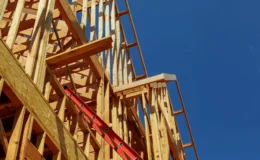Analyzing Toronto’s Proposed “Renovictions” Bylaw: Implications for Property Owners and Tenants
The proposed renovictions bylaw in Toronto has advanced one more step, receiving unanimous approval with amendments from the Planning and Housing Committee on June 13th. This bylaw is designed to tackle the escalating issue of “renovictions” in the city.
This article delves into the details of the proposed bylaw, its implications for property owners and tenants, and its potential impact on the Toronto real estate market.

Key Details of the Bylaw
The Purpose of “Renovictions” Bylaw
The renovictions bylaw primary objective is to safeguard tenants from wrongful eviction under the guise of major renovations. This initiative arises from mounting concerns about tenant displacement and the subsequent loss of affordable housing units.
How Does The Bylaw Impact Property Owners
Challenges
Property owners in Toronto are likely to face some additional challenges with the implementation of the Renovictions bylaw, including:
- Increased Administrative Burden: Landlords will need to provide substantial proof and navigate additional bureaucratic processes to justify evictions.
- Delays in Renovations: The requirement to obtain city-approved building permits may lead to delays, affecting renovation timelines and potentially increasing costs.
Potential Drawbacks
Despite its benefits, the Renovictions bylaw may have some unintended consequences, such as:
- Reduced Investment in Property Improvements: Some landlords might be discouraged from undertaking necessary renovations due to the increased regulatory burden.
- Possible Increase in Rental Rates: To offset the costs and delays associated with compliance, some property owners might raise rental rates for new tenants.
Insights and Recommendations
It’s important to stay up to date with the latest developments regarding the bylaw and understand its requirements thoroughly. If keeping track of the news is challenging or you prefer to avoid the additional burden, professional help might be a viable solution.
Consulting with legal experts can help ensure compliance and navigate any complexities that arise. Additionally, hiring a property management company with extensive experience in rental property renovations can be beneficial.
Companies like LandLord Property and Rental Management offer comprehensive services, including both property management and renovations, making them an ideal partner for those who need help with everything from renovations to rental/tenant management.
Statistics on Renovictions in Toronto
Toronto has seen a substantial increase in renovictions over the past few years. According to a report by ACORN Canada, between 2017 and 2021, there was a 70% increase in the number of N12 eviction notices filed in Ontario, with a total of 18,151 notices. During the same period, Toronto had the highest number of N12 filings, with 5,085 notices, compared to 1,193 in Brampton, the second city on the list 1. Additionally, N13 eviction notices, which are specifically for significant renovations or demolitions, saw an almost 300% increase in Ontario from 2017 to 2022, with 4,067 notices filed.
References:




